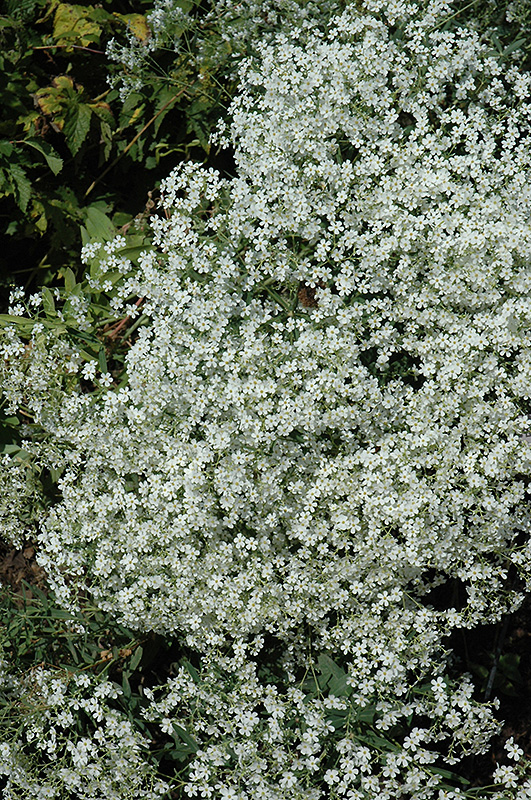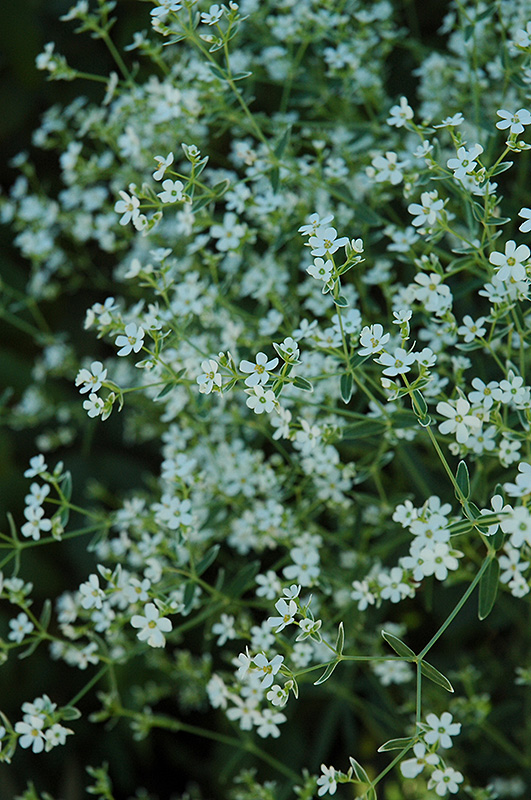Height: 3 feet
Spread: 24 inches
Sunlight:
![]()
![]()
Hardiness Zone: 3
Description:
A lovely mounded variety that features long lasting, airy flower clusters sitting on top of tall green stems; blueish-green foliage turns a stunning crimson red during the cooler fall months; low maintenance, great for borders, beds or cottage gardens
Ornamental Features
Flowering Spurge features airy cymes of white flowers at the ends of the stems from early summer to early fall. Its narrow leaves are bluish-green in color. As an added bonus, the foliage turns a gorgeous crimson in the fall.
Landscape Attributes
Flowering Spurge is an herbaceous perennial with a mounded form. Its relatively fine texture sets it apart from other garden plants with less refined foliage.
This is a relatively low maintenance plant, and should be cut back in late fall in preparation for winter. It is a good choice for attracting bees and butterflies to your yard, but is not particularly attractive to deer who tend to leave it alone in favor of tastier treats. It has no significant negative characteristics.
Flowering Spurge is recommended for the following landscape applications;
- Mass Planting
- Border Edging
- General Garden Use
Planting & Growing
Flowering Spurge will grow to be about 3 feet tall at maturity, with a spread of 24 inches. Its foliage tends to remain dense right to the ground, not requiring facer plants in front. It grows at a slow rate, and under ideal conditions can be expected to live for approximately 10 years. As an herbaceous perennial, this plant will usually die back to the crown each winter, and will regrow from the base each spring. Be careful not to disturb the crown in late winter when it may not be readily seen!
This plant does best in full sun to partial shade. It is very adaptable to both dry and moist growing conditions, but will not tolerate any standing water. It is not particular as to soil pH, but grows best in sandy soils. It is quite intolerant of urban pollution, therefore inner city or urban streetside plantings are best avoided. This species is native to parts of North America, and parts of it are known to be toxic to humans and animals, so care should be exercised in planting it around children and pets. It can be propagated by division.



